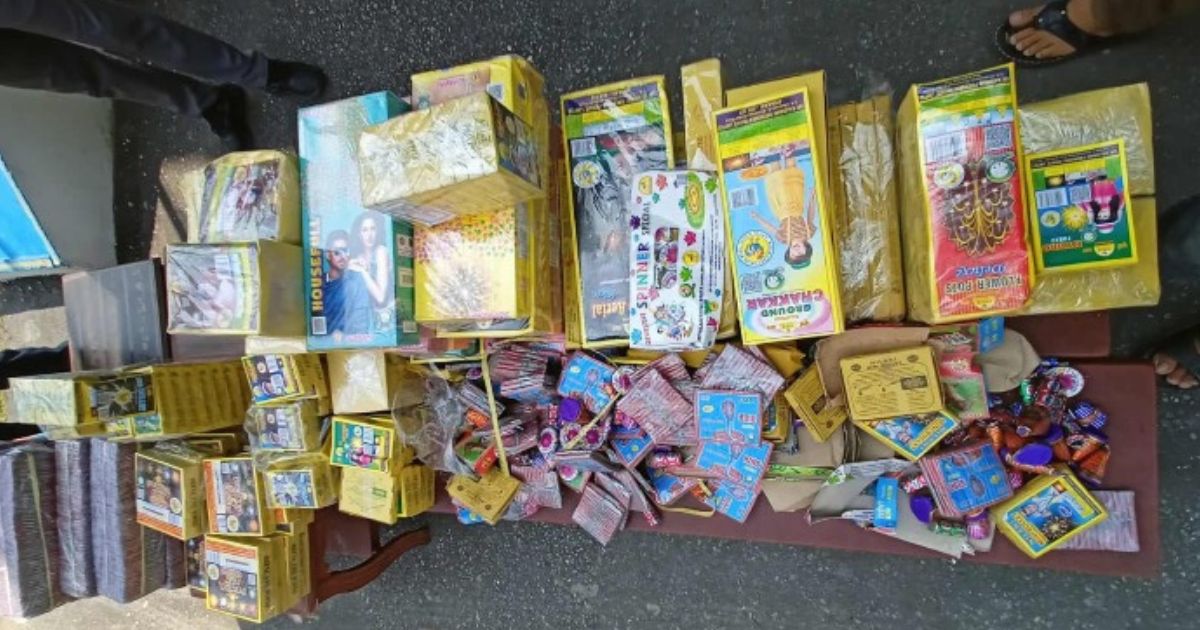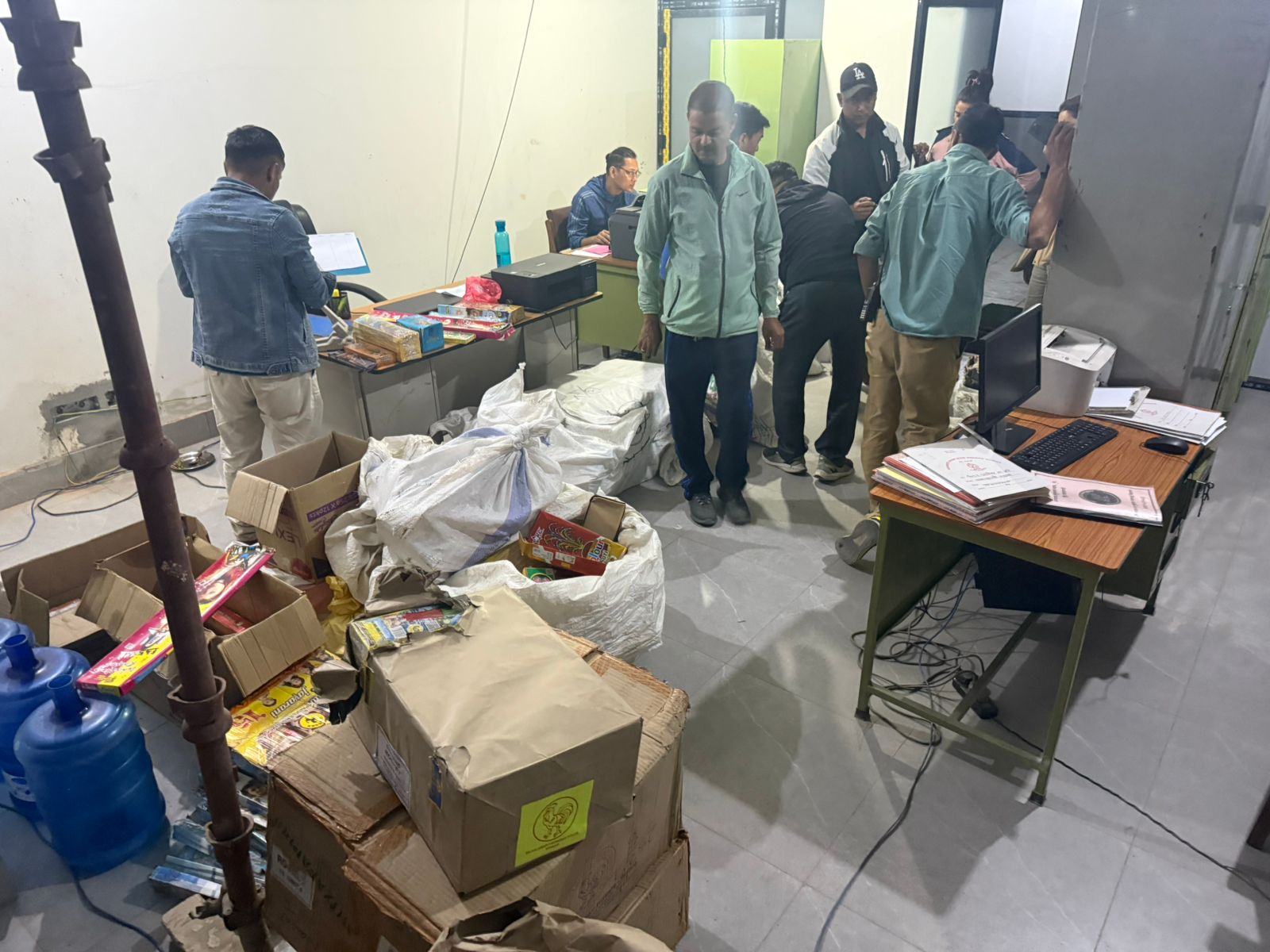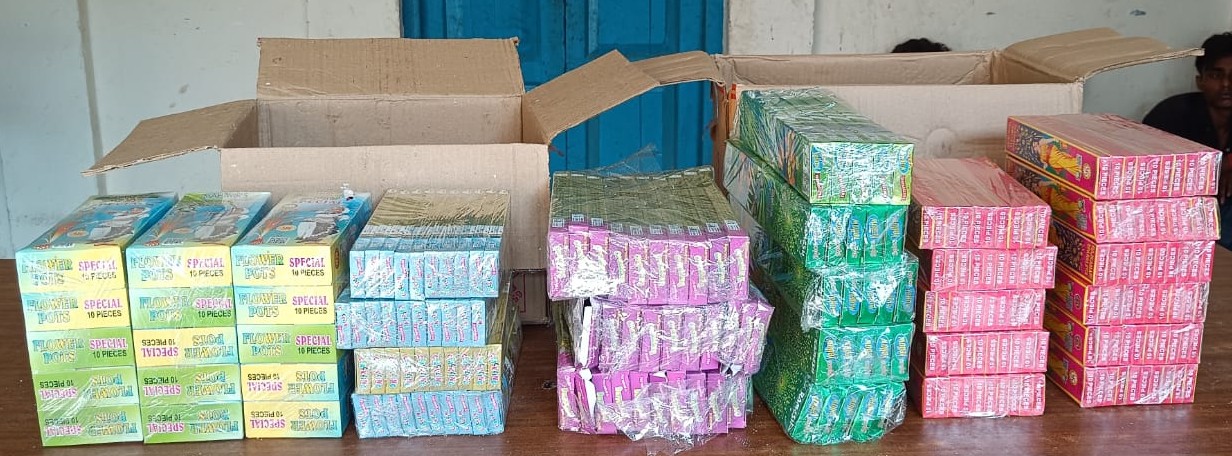

On October 14, 2025, police raided a warehouse storing explosive materials (firecrackers) in Tahachal, Kathmandu Metropolitan City-13. During the raid, Indian national Sunil Kumar, aged 48, was arrested.
According to the Kathmandu Valley Crime Investigation Office, 1,271 packets (10 sacks) of firecrackers and fireworks were recovered from the warehouse. Office spokesperson Police Superintendent Kaji Kumar Acharya stated that the Indian national is in the custody of the District Police Range.
On October 17, a joint team from the Lalitpur District Police Range and the Kathmandu Valley Crime Investigation Office, Teku, seized 1,262 packets of firecrackers worth Rs. 350,000. On the same day, Police Circle Chapagaun recovered 24 packets worth ten thousand rupees (Rs. 10,000), and Police Outpost Sanepa recovered nine packets worth seven thousand rupees (Rs. 7,000).
The Kathmandu District Police Range has seized 5,260 packets of firecrackers worth Rs 1,500,000 between Dashain and Tihar. Spokesperson Police Superintendent Pawan Kumar Bhattarai says that this year, significantly fewer firecrackers have been seized compared to previous years.
These are just a few examples of firecrackers being seized from the capital during the Tihar festival. The sound of firecrackers and fireworks is frequently heard in the capital. Despite some seizures, the police have not been able to stop the firecracker trade. “We took action in places where we received information, but no matter how much action we take, the buying and selling of firecrackers has not stopped; this trend has been observed from the past,” says Police Superintendent Acharya.
On October 13, firecrackers worth Rs 105,000) were seized from Thakur Chok, Ratuwamai Municipality-7, Morang. According to Police Superintendent Kabit Katwal, the person bringing the firecrackers from India fled as soon as they saw the police.
Firecrackers found in Nepal are smuggled in from the Indian market. Indian firecrackers are brought into Nepal from districts bordering India, including Jhapa, Morang, Sunsari, all eight districts of Madhesh Province, and Rupandehi in Lumbini Province, among others. “Those firecrackers then reach the capital; we have not been able to stop firecrackers completely,” says Acharya.
In Nepal, firecrackers are set off to make a loud noise during celebrations. Former Deputy Inspector General of Police Hemanta Malla Thakuri says that firecrackers are widely set off everywhere during Tihar. “There is a custom of making noise for joy, this will never completely stop,” he says.

The police started seizing firecrackers after incidents of people being maimed, eyes being affected, and fires breaking out due to a lack of caution when setting them off. “Earlier, the police didn’t pay much attention to firecrackers,” he says, “They began to be controlled after unfortunate incidents started happening.”
Since firecrackers fall under the category of explosives, the police proceed with action under the offense of transporting explosive materials. “Truckloads of firecrackers like last year are not seen; people say firecrackers are more expensive this time,” says Thakuri, “But the sound of firecrackers is still coming.”
Just as the police have been unable to control the rampant setting off of firecrackers during Tihar, they have also been unable to stop the network of gambling. Although gamblers have been arrested from some locations, open gambling continues during Tihar.
On October 19, the Lalitpur Police Range arrested 17 gamblers from two places. Rs. 13,69,600 in cash and 27 decks of playing cards were recovered from the gamblers. Late on the night of October 20, the police raided the Newa Chuli Resort in Budhanilkantha-13, Chunikhil, and arrested nine people, including the resort operator Rakesh Shrestha, along with Rs 231,000.

Kaski police have arrested 20 people based on information about gambling during Tihar. Kaski Police Chief Police Superintendent Nabin Karki said that Rs 600,000 in cash and gambling materials, including cards and cowrie shells, were recovered from those arrested.
As part of a monitoring campaign to control gambling, the police raided three locations until Monday evening.
Despite repeated police raids, gambling continues. Dice games played on the street are also a form of gambling. Such gambling activities have not stopped. Gambling also has a different cultural context. There is a tradition of playing cards for fun when brothers and sisters gather during festivals. There is also a tendency to gamble year-round.
While it is considered normal to play for fun during festivals, professional gambling has led to the ruin of households. “I wonder what kind of tradition the Nepalis have, or maybe it’s because there are fewer means of entertainment,” says Thakuri, “They just sit down to gamble.” The police take action against gamblers under the Gambling Act.
He says that since commercially thriving gambling results in the loss of homes and property, the government itself should take the initiative for social awareness to stop it.